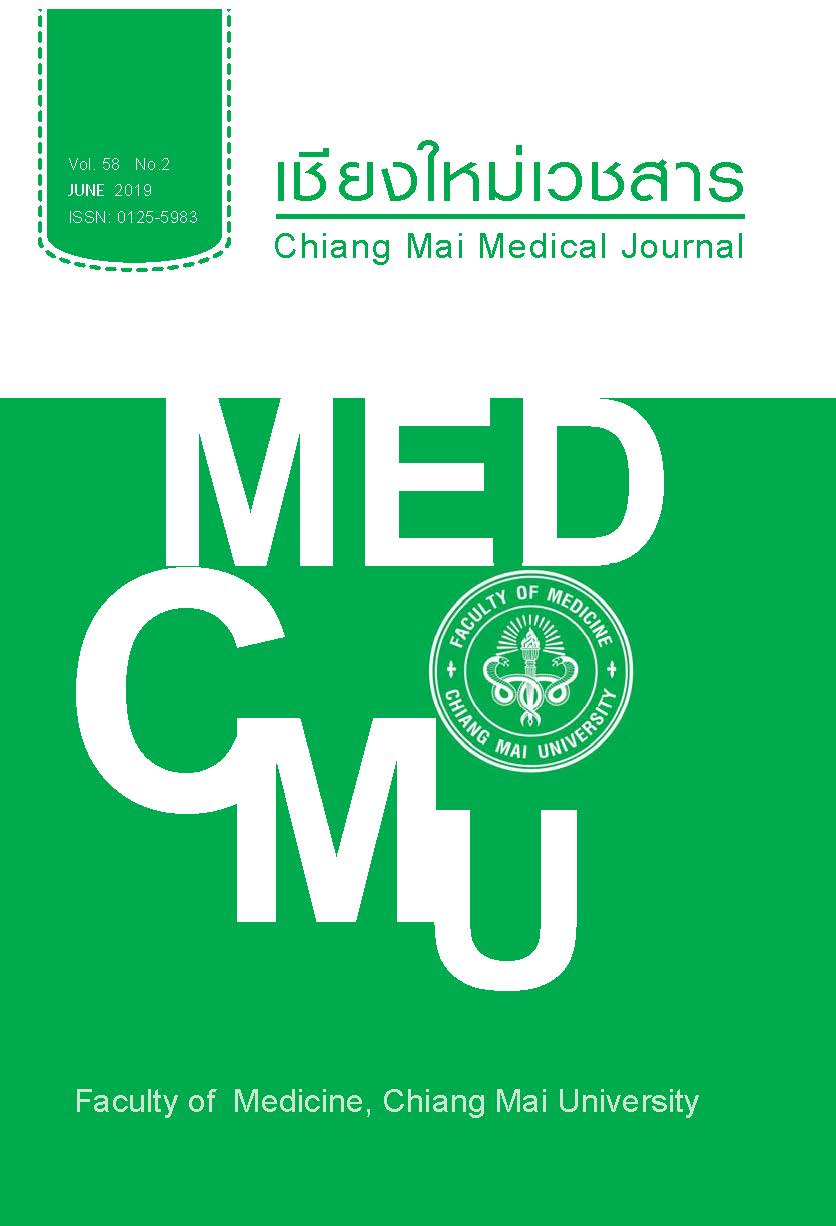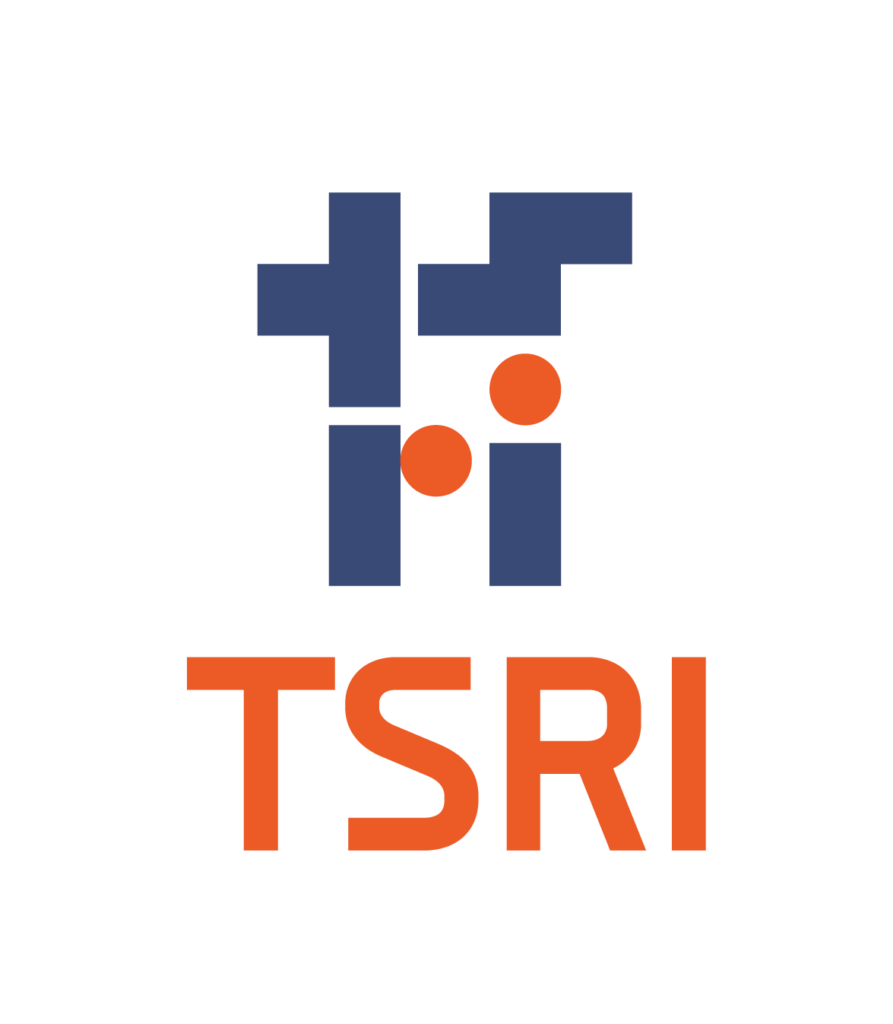บทความปริทรรศน์ เรื่อง ออกซิโทซิน การเลี้ยงลูกด้วยนมแม่ และ ภาวะซึมเศร้าหลังคลอด
คำสำคัญ:
ออกซิโทซิน การเลี้ยงลูกด้วยนมแม่ ซึมเศร้าหลังคลอดบทคัดย่อ
สตรีตั้งครรภ์มากกว่าร้อยละ 25 ได้รับผลกระทบจากอาการซึมเศร้าหลังคลอด ซึ่งนำไปสู่ผลกระทบทั้งต่อมารดา ตัวอ่อนในครรภ์ และ ทารก มีการศึกษาเกี่ยวกับการตรวจตัวกำหนดชีวภาพเพิ่มขึ้น ซึ่งตัวกำหนดที่ถูกศึกษามากที่สุดตัวหนึ่ง คือ ออกซิโทซิน บทความนี้มุ่งเน้นความสัมพันธ์ของ ออกซิโทซิน การเลี้ยงลูกด้วยนมแม่ และ ภาวะซึมเศร้าหลังคลอด พบว่าออกซิโทซินมีบทบาทสำคัญในการเลี้ยงลูกด้วยนมแม่ และมีผลด้านจิตใจคือ ลดความเครียดและสร้างเสริมความผูกพัน มีหลักฐานเพิ่มมากขึ้น ที่สนับสนุนว่าออกซิโทซินสามารถพยากรณ์ภาวะซึมเศร้าหลังคลอดได้ โดยแต่ละการศึกษามีความแตกต่างกันในระยะเวลาหลังคลอด ออกซิโทซินจะอยู่ในระดับปกติจากผลของการเลี้ยงบุตรด้วยนมแม่ ซึ่งอาจจะเป็นปัจจัยป้องกันภาวะซึมเศร้าหลังคลอดได้ อย่างไรก็ตามการศึกษาที่รวบรวมทั้งระดับออกซิโทซิน พฤติกรรมของสตรีตั้งครรภ์ การเลี้ยงบุตรด้วยนมแม่ และ ปัจจัยทางด้านจิตสังคม ยังมีน้อยมาก
เอกสารอ้างอิง
2. Stein A, Pearson RM, Goodman SH, Rapa E, Rahman A, McCallum M, et al. Effects of perinatal mental disorders on the fetus and child. The Lancet. 2014;384(9956):1800-19.
3. Howard LM, Molyneaux E, Dennis C-L, Rochat T, Stein A, Milgrom J. Non-psychotic mental disorders in the perinatal period. The Lancet. 2014;384(9956):1775-88.
4. Burns L, Coleman-Cowger VH, Breen C. Managing maternal substance use in the perinatal period: current concerns and treatment approaches in the United States and Australia. Substance abuse: research and treatment. 2016;10:SART. S34558.
5. Gavin NI, Gaynes BN, Lohr KN, Meltzer-Brody S, Gartlehner G, Swinson T. Perinatal depression: a systematic review of prevalence and incidence. Obstetrics & Gynecology. 2005;106(5):1071-83.
6. O'hara MW, Swain AM. Rates and risk of postpartum depression—a meta-analysis. International review of psychiatry. 1996;8(1):37-54.
7. Gimpl G, Fahrenholz F. The oxytocin receptor system: structure, function, and regulation. Physiol Rev. 2001;81(2):629-83.
8. Fuchs AR, Fuchs F. Endocrinology of human parturition: a review. Br J Obstet Gynaecol. 1984;91(10):948-67.
9. Prevost M, Zelkowitz P, Tulandi T, Hayton B, Feeley N, Carter CS, et al. Oxytocin in pregnancy and the postpartum: relations to labor and its management. Front Public Health. 2014;2:1.
10. Organization WH. The physiological basis of breastfeeding. Infant and Young Child Feeding: Model Chapter for Textbooks for Medical Students and Allied Health Professionals Geneva.2009. p. 11-2.
11. Uvanas-Moberg K, Arn I, Magnusson D. The psychobiology of emotion: the role of the oxytocinergic system. Int J Behav Med. 2005;12(2):59-65.
12. Massey SH, Backes KA, Schuette SA. PLASMA OXYTOCIN CONCENTRATION AND DEPRESSIVE SYMPTOMS: A REVIEW OF CURRENT EVIDENCE AND DIRECTIONS FOR FUTURE RESEARCH. Depress Anxiety. 2016;33(4):316-22.
13. Zelkowitz P, Gold I, Feeley N, Hayton B, Carter CS, Tulandi T, et al. Psychosocial stress moderates the relationships between oxytocin, perinatal depression, and maternal behavior. Horm Behav. 2014;66(2):351-60.
14. Yim IS, Stapleton LRT, Guardino CM, Hahn-Holbrook J, Schetter CD. Biological and psychosocial predictors of postpartum depression: systematic review and call for integration. Annual review of clinical psychology. 2015;11.
15. Skrundz M, Bolten M, Nast I, Hellhammer DH, Meinlschmidt G. Plasma oxytocin concentration during pregnancy is associated with development of postpartum depression. Neuropsychopharmacology. 2011;36(9):1886.
16. Stuebe AM, Grewen K, Meltzer-Brody S. Association between maternal mood and oxytocin response to breastfeeding. Journal of women's health (2002). 2013;22(4):352-61.
17. Massey SH, Schuette SA, Pournajafi-Nazarloo H, Wisner KL, Carter CS. Interaction of oxytocin level and past depression may predict postpartum depressive symptom severity. Arch Womens Ment Health. 2016;19(5):799-808.
18. Lara-Cinisomo S, McKenney K, Di Florio A, Meltzer-Brody S. Associations Between Postpartum Depression, Breastfeeding, and Oxytocin Levels in Latina Mothers. Breastfeed Med. 2017;12(7):436-42.
19. Kimmel M, Clive M, Gispen F, Guintivano J, Brown T, Cox O, et al. Oxytocin receptor DNA methylation in postpartum depression. Psychoneuroendocrinology. 2016;69:150-60.
20. Unternaehrer E, Bolten M, Nast I, Staehli S, Meyer AH, Dempster E, et al. Maternal adversities during pregnancy and cord blood oxytocin receptor (OXTR) DNA methylation. Soc Cogn Affect Neurosci. 2016;11(9):1460-70.
21. Jonas W, Mileva-Seitz V, Girard AW, Bisceglia R, Kennedy JL, Sokolowski M, et al. Genetic variation in oxytocin rs2740210 and early adversity associated with postpartum depression and breastfeeding duration. Genes Brain Behav. 2013;12(7):681-94.
22. Han RT, Kim YB, Park EH, Kim JY, Ryu C, Kim HY, et al. Long-Term Isolation Elicits Depression and Anxiety-Related Behaviors by Reducing Oxytocin-Induced GABAergic Transmission in Central Amygdala. Front Mol Neurosci. 2018;11:246.
23. Gu V, Feeley N, Gold I, Hayton B, Robins S, Mackinnon A, et al. Intrapartum Synthetic Oxytocin and Its Effects on Maternal Well-Being at 2 Months Postpartum. Birth. 2016;43(1):28-35.
24. Mah BL, Van Ijzendoorn MH, Out D, Smith R, Bakermans-Kranenburg MJ. The Effects of Intranasal Oxytocin Administration on Sensitive Caregiving in Mothers with Postnatal Depression. Child Psychiatry Hum Dev. 2017;48(2):308-15.
25. Clarici A, Pellizzoni S, Guaschino S, Alberico S, Bembich S, Giuliani R, et al. Intranasal adminsitration of oxytocin in postnatal depression: implications for psychodynamic psychotherapy from a randomized double-blind pilot study. Front Psychol. 2015;6:426.
26. Garfield CF, Isacco A, Bartlo WD. Men’s health and fatherhood in the urban Midwestern United States. International Journal of Men’s Health. 2010;9(3).
27. Philpott LF, Corcoran P. Paternal postnatal depression in Ireland: Prevalence and associated factors. Midwifery. 2018;56:121-7.
28. Paulson JF, Bazemore SD. Prenatal and postpartum depression in fathers and its association with maternal depression: a meta-analysis. Jama. 2010;303(19):1961-9.
29. Mascaro JS, Hackett PD, Rilling JK. Differential neural responses to child and sexual stimuli in human fathers and non-fathers and their hormonal correlates. Psychoneuroendocrinology. 2014;46:153-63.
30. Gordon I, Zagoory-Sharon O, Leckman JF, Feldman R. Oxytocin and the development of parenting in humans. Biological psychiatry. 2010;68(4):377-82.
31. Feldman R, Gordon I, Zagoory‐Sharon O. Maternal and paternal plasma, salivary, and urinary oxytocin and parent–infant synchrony: considering stress and affiliation components of human bonding. Developmental science. 2011;14(4):752-61.
32. Li T, Chen X, Mascaro J, Haroon E, Rilling JK. Intranasal oxytocin, but not vasopressin, augments neural responses to toddlers in human fathers. Hormones and behavior. 2017;93:193-202.
33. Mezzacappa ES, Kelsey RM, Katkin ES. Breast feeding, bottle feeding, and maternal autonomic responses to stress. J Psychosom Res. 2005;58(4):351-65.
34. Cox EQ, Stuebe A, Pearson B, Grewen K, Rubinow D, Meltzer-Brody S. Oxytocin and HPA stress axis reactivity in postpartum women. Psychoneuroendocrinology. 2015;55:164-72.
35. Krol KM, Grossmann T. Psychological effects of breastfeeding on children and mothers. Bundesgesundheitsblatt-Gesundheitsforschung-Gesundheitsschutz. 2018:1-9.
36. Hamdan A, Tamim H. The relationship between postpartum depression and breastfeeding. The International Journal of Psychiatry in Medicine. 2012;43(3):243-59.
37. Figueiredo B, Canário C, Field T. Breastfeeding is negatively affected by prenatal depression and reduces postpartum depression. Psychological medicine. 2014;44(5):927-36.
38. Niwayama R, Nishitani S, Takamura T, Shinohara K, Honda S, Miyamura T, et al. Oxytocin Mediates a Calming Effect on Postpartum Mood in Primiparous Mothers. Breastfeed Med. 2017;12:103-9.
39. Dias CC, Figueiredo B. Breastfeeding and depression: a systematic review of the literature. Journal of affective disorders. 2015;171:142-54.
40. Doan T, Gay CL, Kennedy HP, Newman J, Lee KA. Nighttime breastfeeding behavior is associated with more nocturnal sleep among first-time mothers at one month postpartum. Journal of Clinical Sleep Medicine. 2014;10(03):313-9.
41. Hughes O, Mohamad M, Doyle P, Burke G. The significance of breastfeeding on sleep patterns during the first 48 hours postpartum for first time mothers. Journal of Obstetrics and Gynaecology. 2018;38(3):316-20.
ดาวน์โหลด
เผยแพร่แล้ว
รูปแบบการอ้างอิง
ฉบับ
ประเภทบทความ
สัญญาอนุญาต

อนุญาตภายใต้เงื่อนไข Creative Commons Attribution-NonCommercial-NoDerivatives 4.0 International License.










